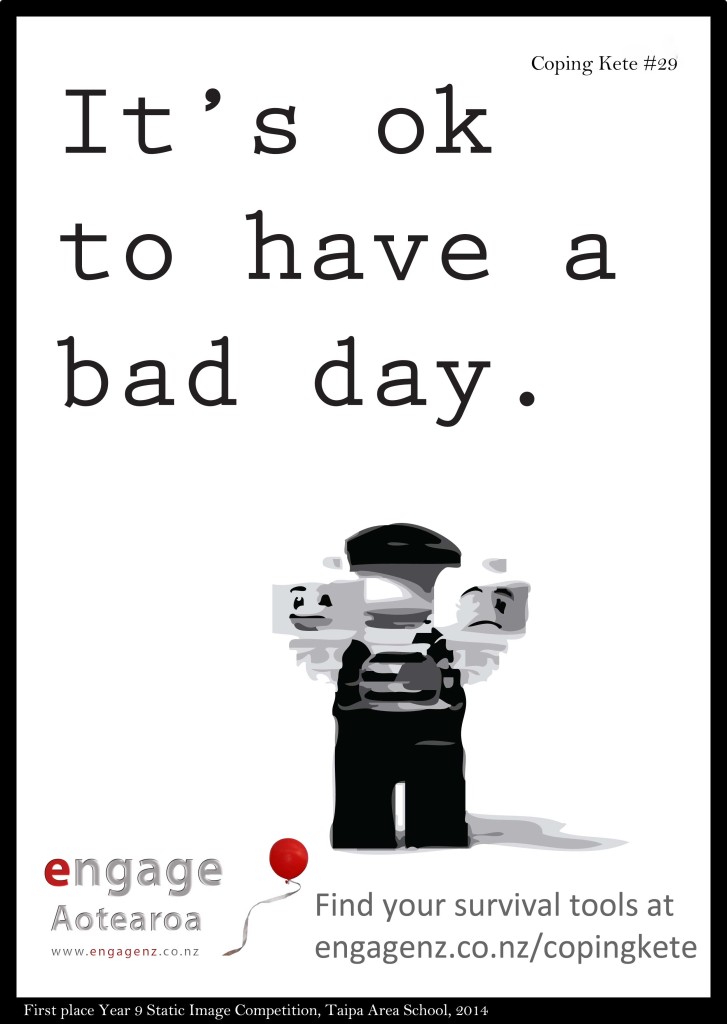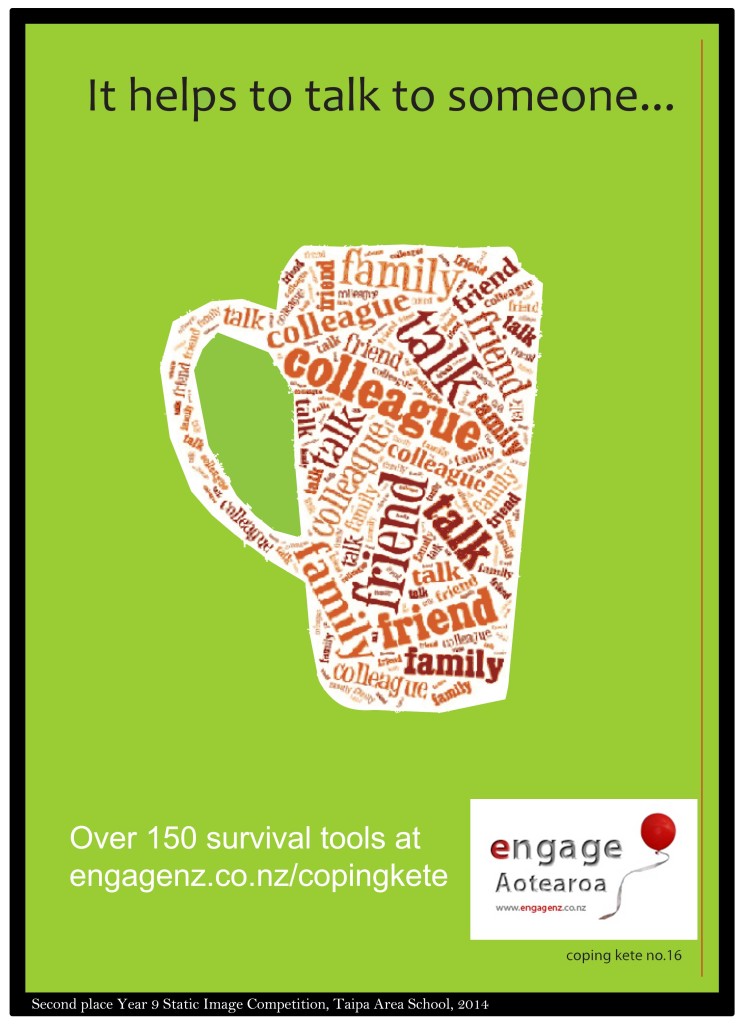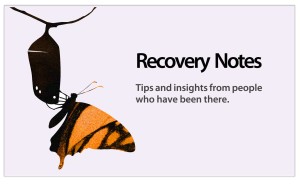Engage Aotearoa went to the Far North LifeHack Weekend in mid-2014 and met Ilana Hill, a Year 9 teacher at Taipa Area School with a passion for suicide prevention. She had the idea to use the content in The Coping Kete to get her students talking about coping and at the same time engage them meaningfully in the Static Image component of the Year 9 English curriculum.
Ilana says “I have a year 9 class that is full of energy and disparate personalities. I was very worried about engagement in English and I was seeking ways to make learning relevant and meaningful.” She adds, “I was really excited about helping make useful information about how to cope with depression visually accessible. I got the idea that perhaps … it could even be a subtle vehicle to teach them some of their own coping techniques for when times get tough.”
I hoped students would develop compassion and tools to become resilient as they progress through their teenage years in a very low decile area where they have to face a lot of negativity in their lives.”
Students were motivated by the knowledge that the top two posters would actually be shared on the Engage Aotearoa website to help more people find what they need. In this way, the project gave students an opportunity to make a real difference to their communities. Mindful of the sensitivity of mental-health related topics in school, Ilana worked with Engage Aotearoa and her school principal to set safe guidelines for the project and incorporated these into her existing lesson plans for the Year 9 static image curriculum.
Engage Aotearoa and the CMHRT board of trustees would like to thank Ilana for leading this partnership and giving permission for her material to be turned into a resource for others (this will be available on the Engage Aotearoa website shortly). The team also sends out a massive thanks to the students at Taipa Area School for their amazing work in creating graphic designs that share ideas that matter. You all did a fantastic job and in the words of the service director “we wish we had space for all of them!”
Check out the top two designs below and help us share these young Kiwis’ work as far and wide as it can go.
First Place
Aaliyah for It’s Ok to Have a Bad Day
Judges notes: “This poster design stood out for its simplicity and the importance of the message that Aaliyah chose to highlight from The Coping Kete. One of the most important things for surviving the tough times, is being allowed to have tough times. So much of our suffering comes from not being allowed to feel what we feel. Strategy 29 in The Coping Kete is all about telling ourselves that it is okay/acceptable to feel the whole spectrum of emotions, instead of trying to stay in the ‘positive’ ones all the time and judging ourselves for the ‘negative’ ones like anger, anxiety, sadness, jealousy or disgust.”

Second Place
Destiny for It Helps to Talk
Judges Notes: “Destiny chose to highlight a message that is central to most effective suicide prevention and mental-health promotion strategies. We liked the idea that a young person chose to share this particular message with other young people. In the words of a young person we met at KiwiFoo Camp in May, “kids are sick of adults telling them what to do”. Here we have a 14 year-old sharing the message that talking helps. We liked how the cup shape suggests sitting down to a cup of tea with someone and the words Destiny chose to fill the cup with might give people a few ideas of who to reach out to. It also says something about the range of people we need to get involved in creating truly supportive communities.”








